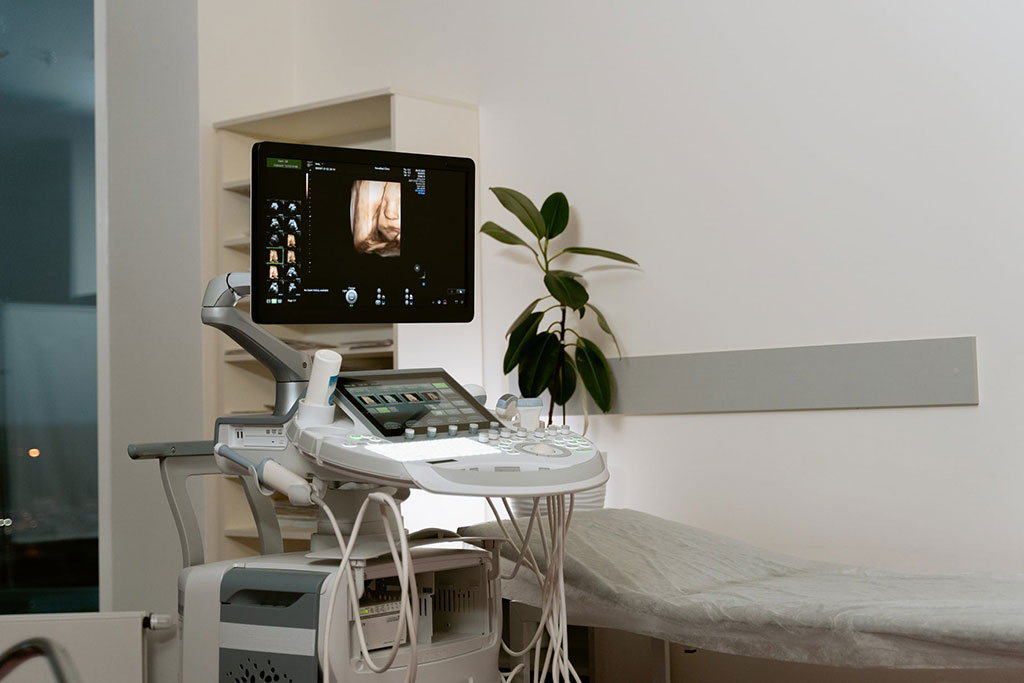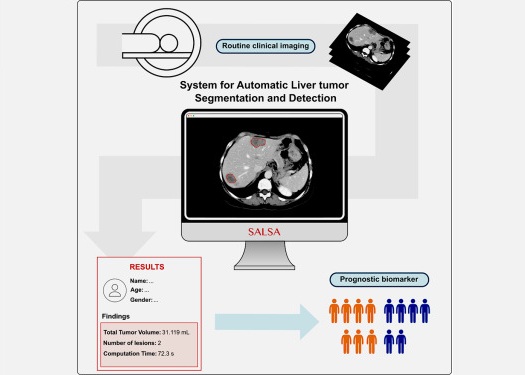AI Automatically Segments Kidneys and Measures Total Kidney Volumes Using Only 3D Ultrasound Images
|
By MedImaging International staff writers Posted on 02 May 2022 |

Total kidney volume (TKV) is the most important imaging biomarker for quantifying the severity of autosomal-dominant polycystic kidney disease (ADPKD). 3D ultrasound (US) can accurately measure kidney volume compared to 2D US; however, manual segmentation is tedious and requires expert annotators. Now, the first study applying deep learning to 3D US in ADPKD has shown promising performance for auto-segmentation of kidneys using 3D US to measure TKV, close to human tracing and MRI measurement.
The imaging and analysis method developed by researchers at the Mayo Clinic (Rochester, MN, USA) could be useful in a number of settings, including pediatric imaging, clinical studies, and longitudinal tracking of patient disease progression. ADPKD is a genetic disorder in which cysts develop within the kidneys, causing kidneys to enlarge and lose function over time. Over time, kidney and liver volumes steadily increase, resulting in renal function decline. There is no cure for PKD, but dialysis, kidney transplant, blood pressure medication, and surgical removal of cysts are treatment options. If diagnosed and monitored at an early stage, better treatment options are possible.
Measuring kidney and liver volumes are some of the most important biomarkers in quantifying the severity of ADPKD and are used in clinical decision making. Apart from MRI and CT imaging, ultrasound (US) imaging is popular and widely used to diagnose acute and chronic kidney diseases. Imaging features computed from US data using deep CNNs improved the classification of children with congenital abnormalities of the kidney and urinary tract and controls. However, the computation of these anatomic measures typically involves manual or semi-automatic segmentation of kidneys in US images, requiring multiple human annotators, increasing inter-operator variability, reducing reliability, and limiting utility in clinical medicine. Automatic kidney segmentation in US images with AI has not progressed recently. Thus, there is a need for further development of US-based kidney imaging and segmentation to understand the problems and improve the performance of the AI models in segmentation.
In the first study to measure total kidney volume from 3D US images using deep learning, the researchers used axially acquired 3D US-kidney images in 22 ADPKD patients where each patient and each kidney were scanned three times, resulting in 132 scans that were manually segmented. The researchers trained a convolutional neural network to segment the whole kidney and measure TKV. All patients were subsequently imaged with MRI for measurement comparison. The researchers found that the method showed promising segmentation performance for auto-segmentation of kidneys and calculating total kidney volume, close to human tracing, and measurement. The researchers also compared its performance with MRI, and found that it achieved good performance, suggesting it may be useful in populations where MRI is more challenging, such as children.
Related Links:
Mayo Clinic
Latest MRI News
- New MRI Technique Reveals True Heart Age to Prevent Attacks and Strokes
- AI Tool Predicts Relapse of Pediatric Brain Cancer from Brain MRI Scans
- AI Tool Tracks Effectiveness of Multiple Sclerosis Treatments Using Brain MRI Scans
- Ultra-Powerful MRI Scans Enable Life-Changing Surgery in Treatment-Resistant Epileptic Patients
- AI-Powered MRI Technology Improves Parkinson’s Diagnoses
- Biparametric MRI Combined with AI Enhances Detection of Clinically Significant Prostate Cancer
- First-Of-Its-Kind AI-Driven Brain Imaging Platform to Better Guide Stroke Treatment Options
- New Model Improves Comparison of MRIs Taken at Different Institutions
- Groundbreaking New Scanner Sees 'Previously Undetectable' Cancer Spread
- First-Of-Its-Kind Tool Analyzes MRI Scans to Measure Brain Aging
- AI-Enhanced MRI Images Make Cancerous Breast Tissue Glow
- AI Model Automatically Segments MRI Images
- New Research Supports Routine Brain MRI Screening in Asymptomatic Late-Stage Breast Cancer Patients
- Revolutionary Portable Device Performs Rapid MRI-Based Stroke Imaging at Patient's Bedside
- AI Predicts After-Effects of Brain Tumor Surgery from MRI Scans
- MRI-First Strategy for Prostate Cancer Detection Proven Safe
Channels
Radiography
view channel
AI Improves Early Detection of Interval Breast Cancers
Interval breast cancers, which occur between routine screenings, are easier to treat when detected earlier. Early detection can reduce the need for aggressive treatments and improve the chances of better outcomes.... Read more
World's Largest Class Single Crystal Diamond Radiation Detector Opens New Possibilities for Diagnostic Imaging
Diamonds possess ideal physical properties for radiation detection, such as exceptional thermal and chemical stability along with a quick response time. Made of carbon with an atomic number of six, diamonds... Read moreMRI
view channel
New MRI Technique Reveals True Heart Age to Prevent Attacks and Strokes
Heart disease remains one of the leading causes of death worldwide. Individuals with conditions such as diabetes or obesity often experience accelerated aging of their hearts, sometimes by decades.... Read more
AI Tool Predicts Relapse of Pediatric Brain Cancer from Brain MRI Scans
Many pediatric gliomas are treatable with surgery alone, but relapses can be catastrophic. Predicting which patients are at risk for recurrence remains challenging, leading to frequent follow-ups with... Read more
AI Tool Tracks Effectiveness of Multiple Sclerosis Treatments Using Brain MRI Scans
Multiple sclerosis (MS) is a condition in which the immune system attacks the brain and spinal cord, leading to impairments in movement, sensation, and cognition. Magnetic Resonance Imaging (MRI) markers... Read more
Ultra-Powerful MRI Scans Enable Life-Changing Surgery in Treatment-Resistant Epileptic Patients
Approximately 360,000 individuals in the UK suffer from focal epilepsy, a condition in which seizures spread from one part of the brain. Around a third of these patients experience persistent seizures... Read moreNuclear Medicine
view channel
Novel Radiolabeled Antibody Improves Diagnosis and Treatment of Solid Tumors
Interleukin-13 receptor α-2 (IL13Rα2) is a cell surface receptor commonly found in solid tumors such as glioblastoma, melanoma, and breast cancer. It is minimally expressed in normal tissues, making it... Read more
Novel PET Imaging Approach Offers Never-Before-Seen View of Neuroinflammation
COX-2, an enzyme that plays a key role in brain inflammation, can be significantly upregulated by inflammatory stimuli and neuroexcitation. Researchers suggest that COX-2 density in the brain could serve... Read moreGeneral/Advanced Imaging
view channel
CT-Based Deep Learning-Driven Tool to Enhance Liver Cancer Diagnosis
Medical imaging, such as computed tomography (CT) scans, plays a crucial role in oncology, offering essential data for cancer detection, treatment planning, and monitoring of response to therapies.... Read more
AI-Powered Imaging System Improves Lung Cancer Diagnosis
Given the need to detect lung cancer at earlier stages, there is an increasing need for a definitive diagnostic pathway for patients with suspicious pulmonary nodules. However, obtaining tissue samples... Read moreImaging IT
view channel
New Google Cloud Medical Imaging Suite Makes Imaging Healthcare Data More Accessible
Medical imaging is a critical tool used to diagnose patients, and there are billions of medical images scanned globally each year. Imaging data accounts for about 90% of all healthcare data1 and, until... Read more
Global AI in Medical Diagnostics Market to Be Driven by Demand for Image Recognition in Radiology
The global artificial intelligence (AI) in medical diagnostics market is expanding with early disease detection being one of its key applications and image recognition becoming a compelling consumer proposition... Read moreIndustry News
view channel
GE HealthCare and NVIDIA Collaboration to Reimagine Diagnostic Imaging
GE HealthCare (Chicago, IL, USA) has entered into a collaboration with NVIDIA (Santa Clara, CA, USA), expanding the existing relationship between the two companies to focus on pioneering innovation in... Read more
Patient-Specific 3D-Printed Phantoms Transform CT Imaging
New research has highlighted how anatomically precise, patient-specific 3D-printed phantoms are proving to be scalable, cost-effective, and efficient tools in the development of new CT scan algorithms... Read more
Siemens and Sectra Collaborate on Enhancing Radiology Workflows
Siemens Healthineers (Forchheim, Germany) and Sectra (Linköping, Sweden) have entered into a collaboration aimed at enhancing radiologists' diagnostic capabilities and, in turn, improving patient care... Read more



















